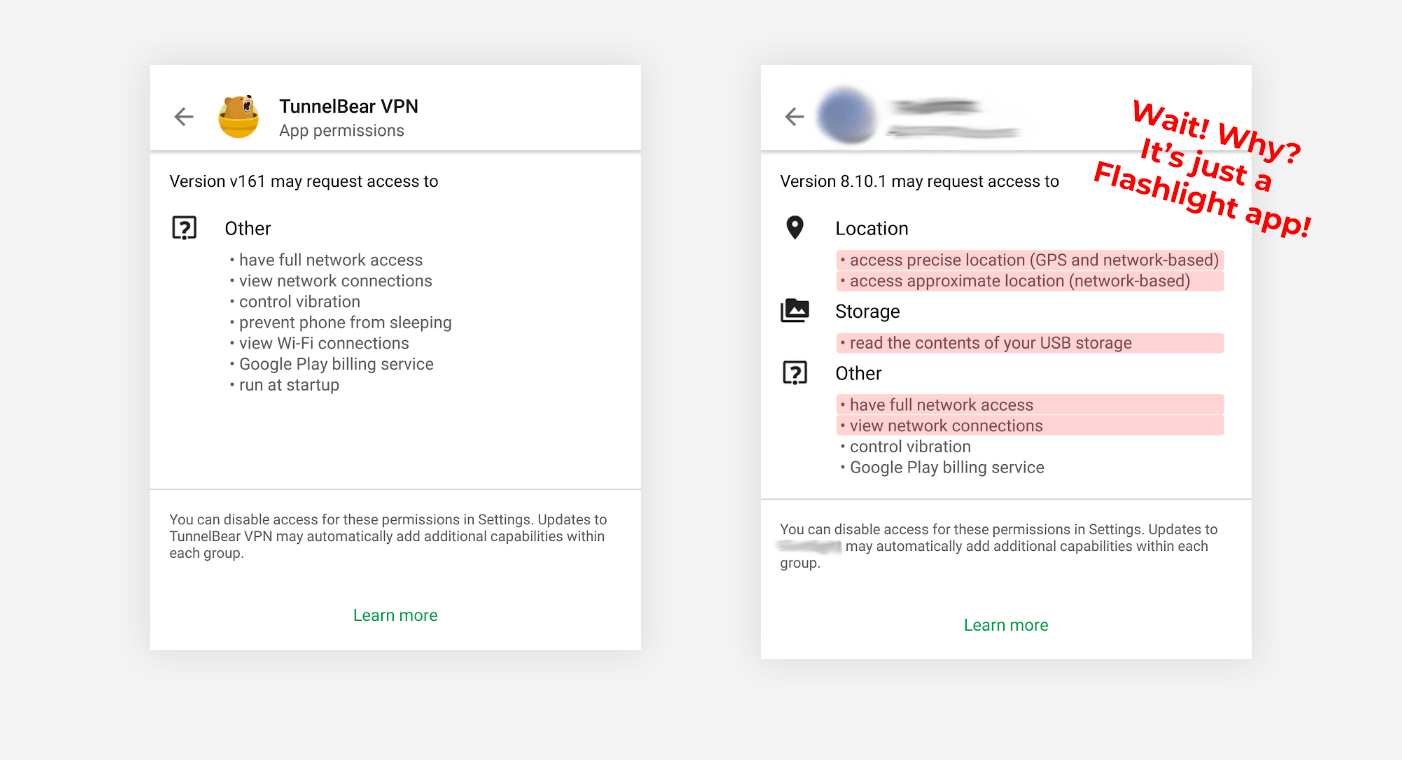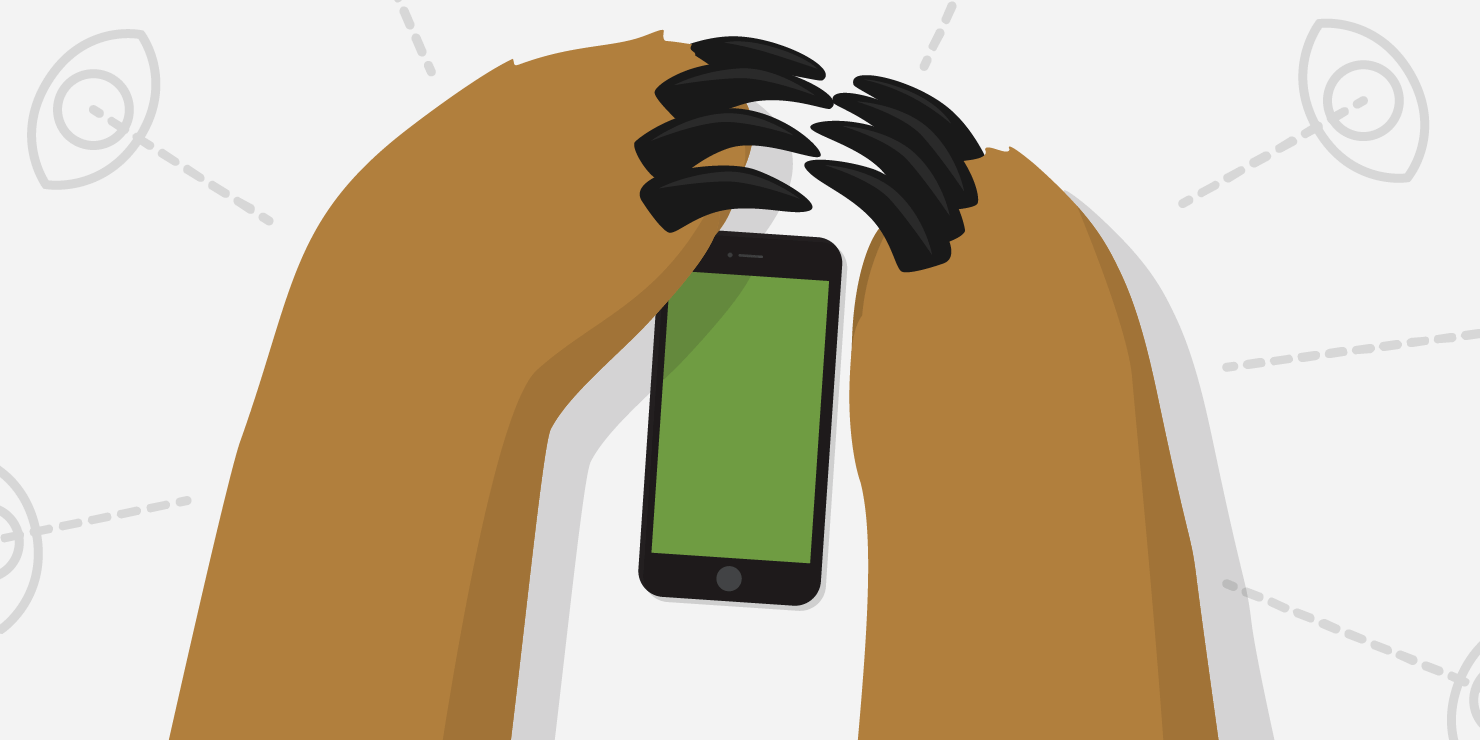How to Secure Your Privacy in 2020
11 minute read
While we enjoy a certain level of privacy in the real world, life online doesn’t really work that way. Imagine walking down the street with someone following your every move, taking detailed notes of everything you do. Every store you look at, every stop you make, catalogued and stored without any explanation or consent. You wouldn’t put up with that, would you? That would be creepy, right?
What if we told you that every time you use a connected device, companies are ignoring your right to privacy? Whether it’s your physical location, your desire to know a piece of information, or an item that you’ve purchased, all that personal information is noted and stored somewhere. Most people don’t feel how equally creepy this is because it isn’t happening in an immediate way. They can’t see it, so they feel like it doesn’t affect them.
2020 is just getting started, so it's your perfect chance to make this year more privacy conscious by taking stock of your online presence. It's time to get reacquainted with apps you downloaded years ago and barely use now. While you’re at it, you should look at the apps you use everyday and make sure you’re still comfortable with the amount of information you share with them. To get you started, here are some helpful suggestions on account settings to look out for, where to find privacy information in popular social media services and why you should be concerned with how much data they have.
Take a rough app inventory
What do you use to access the internet? A phone, maybe a laptop or desktop? How about a tablet? Do you have a smart TV? A constantly listening speaker? A fridge with WiFi? Every connected device you use shares some kind of personal information. To start learning about the amount of information you share, you need to look at your device’s Privacy Policies and Terms of Service. For example, TunnelBear has an easy to read Privacy Policy written in plain English. If something you use doesn’t have a clear stance on privacy, it’s safe to assume the worst and think about cutting that service out of your life.
Once you have an idea of the number of connected devices you’re using, look at the apps on those devices. Can they download new ones? Did they come pre-programmed? Can you delete them? What do they do? Do they need internet access? Do they even have apps? Obviously for things like streaming services, they’ll need access to the internet to work, but if a calculator asks for internet access, you have a problem.
Regularly auditing your app permissions, and paying close attention to permissions when downloading new apps for your devices, is an important part of securing your data. Take a good look at the permissions each app requires before you download it. If you look at the image below, you'll see TunnelBear needs access to your WiFi and network connections in order to encrypt and route and secure your browsing properly. To the right, you'll see permissions for a popular flashlight app asking for things that don’t make sense. Flashlights, like a lot of "productivity" apps, don't need your GPS data, read access to your hard drive, or network access to function.

Understand your online footprint
For many people, Facebook, Twitter, Snapchat and Instagram have become their main sources for news and communication. Surprisingly, a lot of people know social media services package and sell their data, but they ignore the privacy trade-off because it doesn't outweigh the perceived convenience those services provide.
Social media companies offer their services for “free” so they can collect and sell your most personal moments, but without things like Facebook, many people feel like they would lose contact with family and friends. People site keeping track of social events as the number one reason they can’t give up Facebook.
Taking time to honestly think about whether or not you need social media services in your life is an important step to securing your privacy. Figuring out which social media services you use regularly, and can’t live without, will help remove some of the information you regularly share.
Check your account settings
Once you know which social apps you want to keep, take a good look at your account settings, specifically sharing, privacy, and security settings. Here are some links to the settings of popular services. Facebook, Twitter, Snapchat, Tik Tok and Google. Have a good look at each one, and see how comfortable you are with each setting.
For instance, if you check your settings tab in Snapchat and swipe down to “Who Can…”, you can change settings for who can send you snaps, view your stories, see your physical location, and whether or not they can quick add you. If you want to see how much Snapchat knows about you, tap “My Data” and prepare for a shock (and a long wait, it can take a few days before you receive a link).
On Facebook, you’ll want to spend some time getting acquainted with their Help Centre, specifically the “Your Profile Settings” and “Keeping Your Account Secure” sections. When you’re done, head over to their Privacy Basics page. There’s a lot to take in, which should explain why Facebook knows so much about you.
There have been a number of concerns about what Tik Tok does with personal data, and like all social media, you should only share what you're comfortable with. What's really alarming is seeing multiple privacy policies for different parts of the world. If you read all three, you'll see that Tik Tok's privacy policy becomes a lot less private depending on where you are. Be sure to check your account settings if you haven't already, and make any changes you feel comfortable with.
You can apply this advice to every app you put on your phone. Before you install something on your device, read their privacy policy. If you're ok with what they're asking, install the app. Before you do anything else, check the apps account settings and change them accordingly.
Start using secure messaging apps
If you only use social media to keep up with events and invitations, you never post things, and aren’t messaging people in-app, you don’t even need social apps on your device. You can always log in through a web browser that doesn’t track you to read your updates. That won't stop the social site from scooping up all the data it can from your logging in, but it'll block some of the tracking methods used to follow you after you leave their site.
After you’ve changed the permissions, privacy, and security settings to something you're comfortable with, you’ll have a better understanding of what information you're giving away. If you’re not comfortable with companies knowing so much about your personal life, or you find you’re not using the social app all that much, you might be better off removing your account altogether and switching to more secure messaging apps. A nice bonus from switching to secure, privacy focused communications, is that you get to help your friends and family protect their privacy too.
Security tools we like
Using TunnelBear is a great way to start browsing the internet privately, but if you’re looking for more ways to take back your online privacy, there are privacy conscious versions of most of the apps you use every day. There are private messaging apps, encrypted email, browsers that block trackers and obscure your search data, and if you really want to level up your privacy game, there are even operating systems you can run off a USB stick that leave no traces behind. Here’s a short list of some of the tools we like:
2FA
Encrypted chat
Encrypted VOIP/video calls
Encrypted file storage
Private browsing
Encrypted browsing plugin
Private search
Tracker and javascript blockers
Password manager
Live operating system
VPN
Protect your privacy
You can start protecting your online privacy by understanding the amount of information you give away daily. The good news is, you don't have to stop using the internet. Knowing what you’re sharing, and why, helps you balance the pros and cons of what you do online. If you’re not comfortable with a company knowing as much about you as they do, it might be time to try a less invasive service.
Using privacy tools, made by companies that believe privacy is a right worth fighting for, will help keep you safe online. As a bonus, you get to declutter your online life and refocus on things that really matter to you. A perfect way to start being more privacy conscious is to encrypt your browsing, and you can try TunnelBear for free to see how easy privacy can be.
Happy tunneling,


